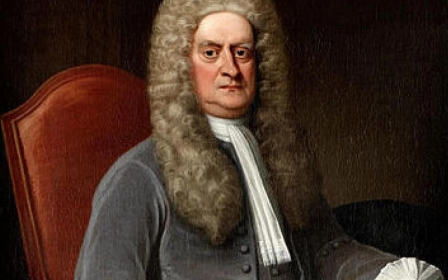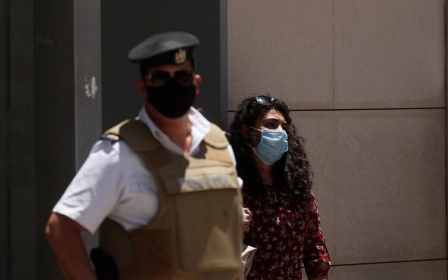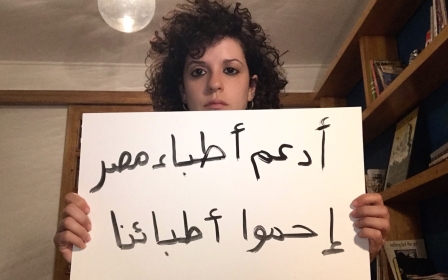Egypt censors media from reporting on Libya, Sinai, Renaissance Dam and Covid-19
Egypt’s Council for Media Regulation has come under fire after announcing a ban on media addressing various "sensitive" issues.
From now on, outlets and social media users are restricted from covering or discussing Ethiopia's Renaissance Dam, the coronavirus and the conflicts in Libya and the Sinai Peninsula.
The council warned that only information issued by official authorities could be reported, and legal measures would be taken against violators.
“The country is going through a dangerous and sensitive period which requires the concentrated efforts of all national powers to maintain the country’s national security," it said in a statement.
"The Supreme Council for Media Regulation confirms the need for all media and social media sites, in all their forms, to abide by data issued by official sources when broadcasting information regarding Libya, the Renaissance Dam and the military operations in Sinai against terrorism."
New MEE newsletter: Jerusalem Dispatch
Sign up to get the latest insights and analysis on Israel-Palestine, alongside Turkey Unpacked and other MEE newsletters
The Egyptian National Action Group (ENAG), a key opposition group to Egypt's government, condemned the ban and said that no emergency declaration could justify this level of censorship.
"Such state-sponsored abuse against the freedom of expression must never be normalised," ENAG said in a statement.
"This measure is not only morally wrong but also constitutes a real security threat to the public, as a consequence of the lack of information, lack of transparency and the regime's impunity."
Online, social media users have called the move an act of censorship and decried it as a way for the government to hide information from citizens.
Translation: The Supreme Council for Media Regulation issued a statement threatening the media and social media users with prosecution if any news is circulated about the military operations in Libya, negotiations surrounding the Renaissance Dam, and the ramifications of the coronavirus. This regime has reached levels of insanity that have not been reached before and Egypt is awaiting a catastrophe worse than 1967.
Translation: After the Sisi regime has criminalised addressing certain topics such as the Renaissance Dam, the conditions in Libya and the coronavirus pandemic in the media and on social media... this suggests that Egypt is in danger and Sisi wants to hide the truth from Egyptians.
Earlier this year, the Egyptian regulator also issued a decision banning writers from using pseudonyms without its consent, in a further setback for press freedom in the country.
Print and online media outlets are now required to submit a request that clarifies the reason for using pseudonymous bylines, the duration of using them, and the writers’ real names.
The Egyptian government has recently been scrutinised for misreporting the number of coronavirus cases in the country that are expected to be much higher than official figures claim.
Last month, hospital conditions and a shortage of protective equipment available to medical workers treating coronavirus patients in Egypt sparked a barrage of criticism and brought doctors and nurses close to revolt.
Meanwhile, Sisi's government is embroiled in fraught negotiations with Ethiopia over its Renaissance Dam project, which will affect the Nile River's flow into Egypt. Talks are deadlocked and have been a source of tension in the Nile River basin since Ethiopia broke ground almost a decade ago.
In Libya, Egypt - alongside the UAE and Russia - has been backing the forces of eastern commander Khalifa Haftar. However, Haftar was last month dealt a stinging defeat by his rival the Government of National Accord, who with Turkish backing decisively repelled his 14-month assault on Tripoli.
To the east, the government has struggled to contain a deadly Islamic State group-linked insurgency in the Sinai Province that has only worsened since Sisi came to power in a 2013 military coup.
Middle East Eye delivers independent and unrivalled coverage and analysis of the Middle East, North Africa and beyond. To learn more about republishing this content and the associated fees, please fill out this form. More about MEE can be found here.




